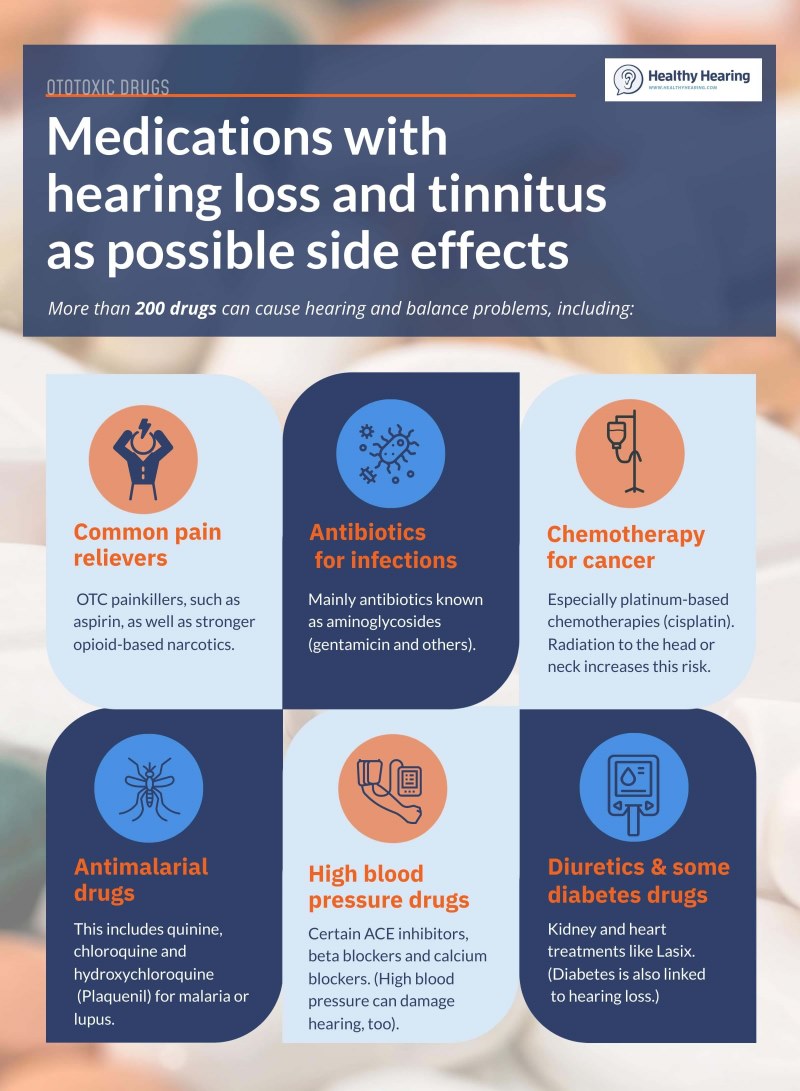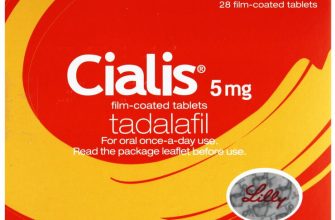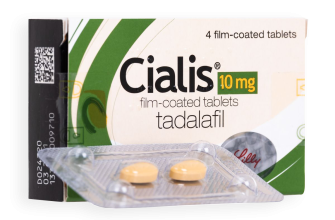If you find yourself taking Cialis and experiencing ear infections, you’re not alone. While Cialis is primarily used for erectile dysfunction, some users report overlapping issues with ear infections. Knowing how these two can relate helps you make informed decisions about your health.
Cialis, containing the active ingredient tadalafil, works by increasing blood flow to specific areas of the body. Ear infections result from bacteria or viruses affecting the middle ear, often causing pain and discomfort. Despite their differing functions, the connections between increased blood flow and ear health merit attention.
Studies on tadalafil’s impact in areas beyond erectile function are ongoing. Users must monitor symptoms and communicate with healthcare providers. If you notice heightened ear discomfort while on Cialis, consult your doctor to evaluate your treatment plan and explore alternative options that might alleviate both concerns effectively.
- Cialis and Ear Infections
- The Relationship Between Cialis and Ear Health
- How Cialis Affects Blood Flow and Ear Function
- Potential Side Effects of Cialis Related to Ear Infections
- Hearing-Related Concerns
- Monitoring Symptoms
- Consultation Tips for Patients Using Cialis with Ear Issues
- Current Research on Cialis and Otological Conditions
Cialis and Ear Infections
Cialis does not directly affect ear infections, but it’s important to consider potential interactions if you’re taking the medication alongside antibiotics or other treatments for ear infections.
Monitor your overall health closely while using Cialis. Here are some considerations:
- Consult your doctor: Always check with your healthcare provider before combining Cialis with any medication for ear infections.
- Watch for side effects: Be alert for any unusual symptoms, especially if you experience hearing changes while on Cialis.
- Report any issues: Inform your doctor about any discomfort or complications, including those related to hearing.
Cialis may cause headaches and other side effects that could mimic symptoms of an ear infection. Differentiating between these conditions is key to receiving the correct treatment.
Hydration can support overall health, so drink plenty of fluids while undergoing treatment for ear infections and while taking Cialis.
In summary, while Cialis does not treat ear infections, awareness and communication with your healthcare provider can help manage both conditions effectively.
The Relationship Between Cialis and Ear Health
Cialis does not have a direct link to ear infections or general ear health. However, some users report mild side effects, such as tinnitus or temporary hearing changes. If you experience these symptoms, consult a healthcare professional immediately.
Research indicates that any potential effects of Cialis on the auditory system remain minimal. Hearing loss is not a widely recognized side effect of the medication. Notably, pre-existing conditions such as ototoxicity from other medications or loud noise exposure can contribute to ear issues. Thus, ensure your healthcare provider knows your complete medical history before starting Cialis.
Stay hydrated while using Cialis. Dehydration can adversely affect overall health, including ear function. Combine Cialis with a healthy lifestyle, avoiding substances that might impair your hearing, such as excessive alcohol or recreational drugs.
For individuals taking Cialis, maintaining regular check-ups is advisable. This practice allows for early detection of any unintended side effects. If you have a history of ear infections or hearing loss, discussing the use of Cialis with your doctor will provide personalized guidance.
In summary, while Cialis primarily targets erectile dysfunction, being mindful of any auditory changes while taking it can enhance your overall well-being. Prioritize open communication with your healthcare provider to address any concerns promptly.
How Cialis Affects Blood Flow and Ear Function
Cialis increases blood flow by inhibiting the enzyme phosphodiestearase type 5 (PDE5). This mechanism relaxes blood vessels in specific areas, including the penis, which is its primary target. However, enhanced circulation can also affect other regions, including the ears.
The inner ear relies on a rich supply of blood to maintain its function. When blood flow improves, there may be positive outcomes for ear health. Users of Cialis have reported a reduction in symptoms related to tinnitus and hearing issues, attributed to improved circulation. However, individual experiences may vary.
It’s advisable to monitor your response while using Cialis, particularly if you have a history of ear problems or conditions affecting hearing. If any unusual symptoms arise, consider consulting a healthcare professional for guidance. Adjustments may be needed based on personal health circumstances.
In summary, Cialis can enhance blood flow, potentially benefiting ear function. Staying aware of your own experience will help in understanding how this medication influences your body as a whole.
Potential Side Effects of Cialis Related to Ear Infections
Cialis may lead to side effects that impact hearing, which can be particularly concerning for individuals prone to ear infections. Some users report sudden hearing loss or changes in hearing that could exacerbate existing ear issues.
Hearing-Related Concerns
The association between Cialis and hearing problems is significant. If you experience symptoms such as dizziness or tinnitus while taking Cialis, it’s essential to consult a healthcare provider. These symptoms may increase the risk of ear infections or worsen their effects.
Monitoring Symptoms
Keep track of any unusual changes in your hearing or balance. If you develop an ear infection while using Cialis, inform your doctor about your medication. This information can help them recommend an appropriate treatment plan tailored to your needs.
| Symptom | Potential Action |
|---|---|
| Sudden hearing loss | Seek immediate medical attention |
| Persistent tinnitus | Consult a healthcare provider |
| Dizziness or balance issues | Evaluate overall health and discuss with a doctor |
| Ear pain or discomfort | Consider assessment for ear infection |
Being aware of these potential side effects and taking prompt action can help maintain your ear health while using Cialis. Always prioritize communication with your healthcare provider to ensure the best outcomes.
Consultation Tips for Patients Using Cialis with Ear Issues
Inform your healthcare provider about your use of Cialis and any current ear issues. This information helps assess potential interactions and side effects.
Discuss your symptoms thoroughly. Describe any pain, discomfort, or hearing changes you experience. This transparency aids in diagnosing the root cause of your ear issues.
Ask about possible links between Cialis and ear problems. While direct connections are sparse, men report changes in hearing and tinnitus. Clarifying your concerns ensures you receive tailored advice.
Share your complete medical history. Include any other medications, allergies, or underlying conditions. This data is essential for safe treatment planning.
Inquire about monitoring. If you notice unusual ear symptoms after starting Cialis, consult your doctor promptly. Regular check-ins can catch potential issues early.
Evaluate alternative options with your doctor. If Cialis poses risks due to your ear condition, discuss other therapies that may align better with your health needs.
Stay informed about research findings. New studies may provide insights into the relationship between erectile dysfunction treatments and ear health. Staying updated empowers your decisions.
Consider lifestyle factors affecting both erectile and ear health. A balanced diet, regular exercise, and avoiding smoking can improve your overall well-being and reduce complications.
Maintain open communication with your healthcare team. Address any changes in your condition or new symptoms. This collaborative approach ensures optimal care and management.
Current Research on Cialis and Otological Conditions
Recent studies highlight a potential link between Cialis and improvements in otological conditions. Researchers are investigating how tadalafil, the active ingredient in Cialis, may influence blood flow in the inner ear, suggesting that it could help in managing tinnitus and hearing loss.
A 2022 study published in the Journal of Otolaryngology found that patients with chronic tinnitus who took tadalafil experienced a reduction in symptoms compared to those who received a placebo. The increased blood flow attributed to the medication may enhance auditory function and reduce the perception of ringing in the ears.
Another area of exploration is the treatment of ear infections. Preliminary data indicates that Cialis may assist in alleviating pressure and discomfort associated with middle ear infections by improving drainage through vasodilation of surrounding blood vessels. A trial involving adults with recurrent ear infections reported fewer episodes among those treated with tadalafil.
While these findings are promising, further clinical trials are essential to establish safe and effective dosing regimens. Experts recommend that individuals considering Cialis for otological issues consult with healthcare professionals to discuss potential benefits and risks.
Monitoring responses in larger cohorts will contribute to a clearer understanding of how Cialis impacts ear health, making this an important area for future research. Stay informed as studies progress and may potentially change treatment protocols for ear-related disorders.










